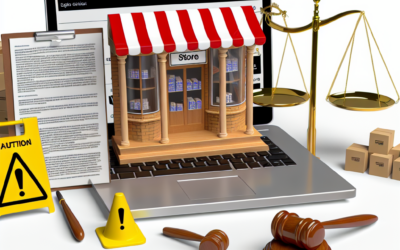WooCommerce Security: Protecting Your Online Store
In the rapidly evolving world of e-commerce, ensuring the security of your online store is paramount. WooCommerce, a popular WordPress plugin, powers millions of online stores worldwide. However, with its widespread use comes the increased risk of cyber threats. This article delves into the essential strategies for safeguarding your WooCommerce store, ensuring both your business and customers remain protected.
Understanding the Importance of WooCommerce Security
Security breaches can have devastating effects on an online business. From financial losses to reputational damage, the consequences are severe. According to a 2022 report by Cybersecurity Ventures, cybercrime is expected to cost the world $10.5 trillion annually by 2025. For WooCommerce store owners, this underscores the critical need for robust security measures.
Key Security Measures for WooCommerce Stores
1. Regularly Update WooCommerce and WordPress
One of the simplest yet most effective security measures is keeping your WooCommerce and WordPress installations up to date. Updates often include patches for known vulnerabilities, making it harder for hackers to exploit your site.
- Enable automatic updates for plugins and themes.
- Regularly check for and install updates manually if needed.
2. Use Strong Passwords and Two-Factor Authentication
Weak passwords are a common entry point for cybercriminals. Implementing strong password policies and two-factor authentication (2FA) can significantly enhance your store’s security.
- Encourage customers and staff to use complex passwords.
- Implement 2FA for all admin accounts.
3. Secure Your Hosting Environment
Your hosting provider plays a crucial role in your store’s security. Opt for a reputable provider that offers robust security features.
- Choose a host with SSL certificates and firewall protection.
- Ensure regular backups are part of your hosting plan.
4. Implement a Web Application Firewall (WAF)
A Web Application Firewall (WAF) acts as a barrier between your website and potential threats. It filters and monitors HTTP traffic, blocking malicious requests before they reach your site.
- Consider using services like Cloudflare or Sucuri for WAF protection.
- Regularly review and update your WAF settings.
5. Monitor and Audit Your Site Regularly
Regular monitoring and auditing can help identify potential vulnerabilities before they are exploited.
- Use security plugins like Wordfence or iThemes Security for real-time monitoring.
- Conduct regular security audits to assess your site’s defenses.
Case Study: A Lesson in WooCommerce Security
In 2021, a small online retailer experienced a data breach due to outdated plugins. The breach resulted in the loss of customer data and a significant drop in sales. By implementing regular updates and stronger security protocols, the retailer was able to recover and prevent future incidents. This case highlights the importance of proactive security measures in protecting your WooCommerce store.
Conclusion: Securing Your WooCommerce Store
Protecting your WooCommerce store is not just about safeguarding your business; it’s about ensuring trust and reliability for your customers. By implementing the strategies outlined above, you can significantly reduce the risk of cyber threats. Remember, security is an ongoing process that requires vigilance and regular updates. As cyber threats continue to evolve, so too must your security measures. Take action today to secure your WooCommerce store and ensure a safe shopping experience for your customers.









